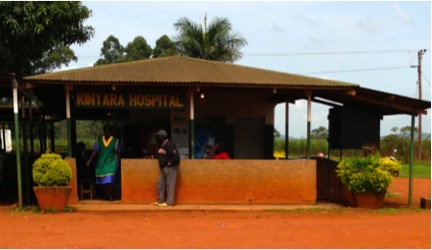Being born and raised just outside of Silicon Valley and graduating from a university that feeds companies like Intel and Google, I have an ingrained, almost subconscious, commitment to using the latest technology for every task in life, all in the name of efficiency.
From relying on Yelp to decide where I’ll eat my meals to using NextBus to tell me exactly what minute my bus will arrive, technology has found a silent, sneaky way of inching its way into every corner of my life. Working with a group? I’ll make a Google Doc—no need to waste time scheduling a face-to-face meeting. Trying to keep in touch with friends? Instagram and Facebook will do. Need some academic sources? Maybe I’ll go to a library, but I will probably just sit there and use Google Scholar to find everything I need (walking around and finding actual books is really just a waste of time). Bored? Netflix and HBO Go (and maybe Temple Run) are all I need. The movie theatre is too expensive anyways.
I may have not fully realized it, but back home life revolved around figuring out ways to do things faster and easier, and technology ruled that objective. It wasn’t until I went upcountry to do some field work with IDI that I began to truly appreciate the art of gaining a deep understanding of a system and community. Believe it or not, there is not an app for that.

As our team made our way to dozens of health facilities throughout Kampala and Western Uganda, we carried out a baseline assessment to help us identify how staff could best benefit from IDI training. I was tasked with looking at every Ministry of Health register each facility used and computing data on the number of clients served for malaria, HIV/AIDS, TB, family planning, and safe male circumcision.
It was not lost on me that my role could be completely eliminated if this data was recorded in an online database. As I sat in each facility, painstakingly adding up the numbers and reviewing every register I could get my hands on, I felt a deepening sense of defeat. I was truly a world apart from the Silicon Valley I knew as home.
I noticed that my colleagues did not seem to be feeling the same frustration. I observed in awe as they patiently guided healthcare workers through the survey we were collecting, reading aloud every question, explaining terms, and providing examples of how to answer. Since the survey was eight pages, this process often took over two hours. Yet, by taking the time to go through every question and address every individual’s concerns, we were able to gain a much deeper understanding of the community we were working with and the health care system were were trying to improve in a way that an online, impersonal survey could not have.

As much as the Silicon Valley in me protests, technology is more often a tool than an answer. Sure, a more efficient, technologically advanced system is ideal, and we’re moving towards that. However, gaining a deeper understanding of the issues embedded in the healthcare system and community is paramount to coming up with effective solutions. While I haven’t said goodbye to Google Docs and Google Scholar completely, I have come to appreciate the value of taking time to have a simple conversation, all in the name of deeper understanding.
